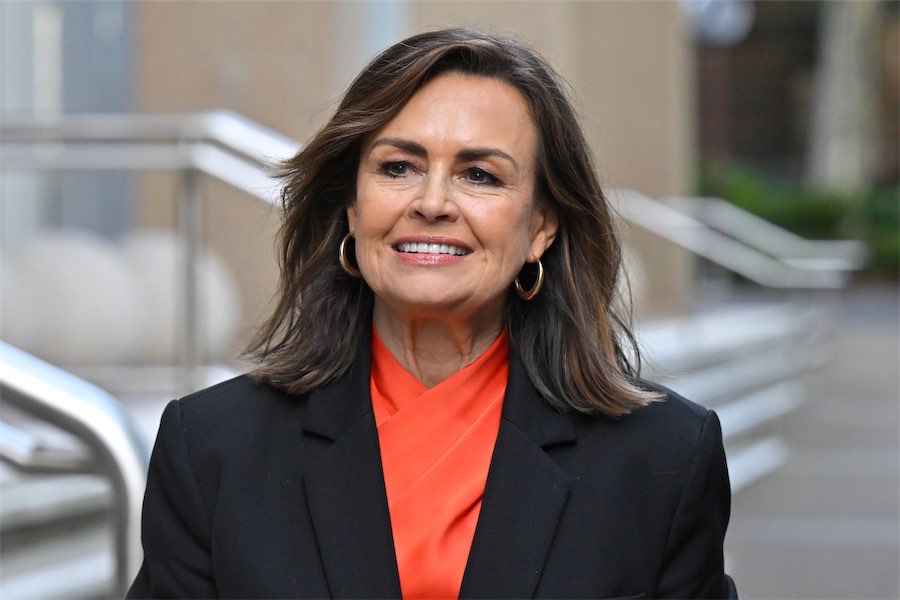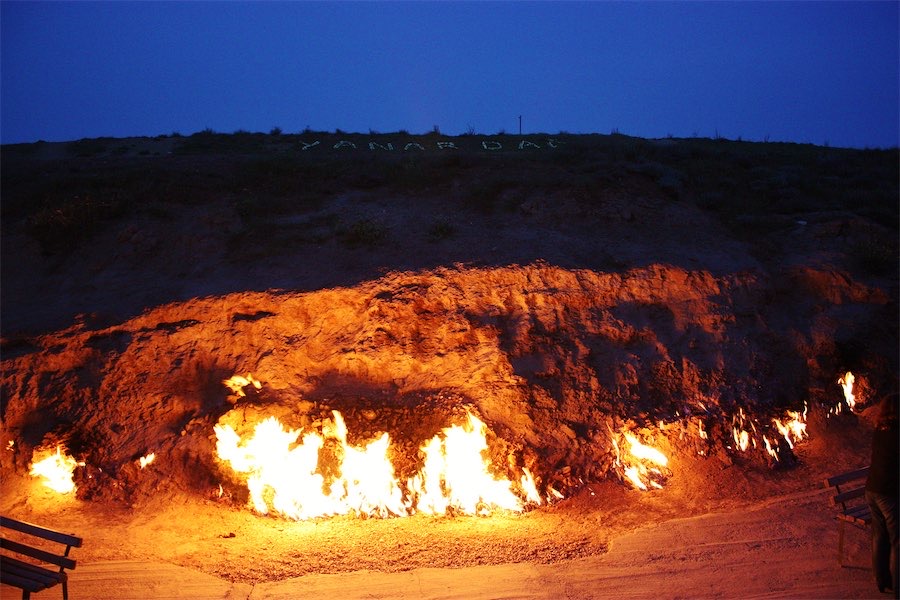
“As a witness, Lisa Wilkinson was unruffled during the cross-examination from start to finish. Her answers were clear, all too clear as to her perceptions of the shortcomings of her employer. She could leave the witness box with her head held high,” writes legal columnist HUGH SELBY.
Justice Lee of the Federal Court expects to give his decision in Bruce Lehrmann’s defamation case against Network Ten and Lisa Wilkinson some time in March.

He has been busy reviewing the evidence (written and spoken), along with submissions (also written and spoken), and pondering what to accept and what to reject. It is both time consuming and mentally challenging.
Background to Wilkinson’s cross claim against Ten
On Tuesday he was taken away from that “deliberating and writing” task to hear evidence in the action (called a cross claim) that Ms Wilkinson has taken against her employer, Network Ten, seeking to have them pay for the legal costs that she has incurred defending Mr Lehrmann’s actions against her.
This is a fight between two parties that might have been thought to be allies. After all, that now infamous interview on The Project with the young woman who now chooses to live in France, together with Ms Wilkinson’s Logies speech, would seem at first sight to have promoted both the channel and Ms Wilkinson to the viewing audiences.
What went wrong?
That Logies speech was given very shortly before Mr Lehrmann’s rape trial was to begin in the ACT Supreme Court. The Logie was awarded to Network Ten.
They asked Ms Wilkinson to give the acceptance speech on their behalf.
The content and public reach of that speech – in support of the young woman – entailed that the trial could not go ahead. It was delayed for months in the hope that any jurors would have forgotten the content of the speech by the time the trial started.
These events attracted media attention, some nastily critical of Ms Wilkinson. As she told the court today, the blame was pointed at her, not Network Ten.
Readers will recall that the jurors at the delayed rape trial let the judge know that they could not reach a verdict, that the judge followed the usual practice of asking them to keep trying, that during those further efforts it was discovered that one juror had brought “outside information” into the jury room, and that the trial judge then had to discharge the jury without there being any verdict.
The prosecutor intended to have a second trial; however, he then took the decision that there would never be another trial.
This was followed in mid-2023 by an inquiry by Walter Sofronoff KC that led to the prosecutor, Shane Drumgold, resigning.
As fate would have it, his ACT Supreme Court action seeking to have the adverse findings against him set aside is being heard this week.
The issues in the cross claim
Thanks to Justice Lee’s intervention shortly before lunch today it became clear that the issues between these former media allies concern:
- The reasonableness of Ms Wilkinson seeking separate legal representation to defend the claim against her by Mr Lehrmann; and,
- What was the ambit of the “indemnity” that Network Ten had offered Ms Wilkinson as both of them defended the defamation action brought against them by Mr Lehrmann. Was it an indemnity that Network Ten would pay any damages awarded to Mr Lehrmann, or did it extend to paying her legal costs and, if so, to what extent?
What Ms Wilkinson had to tell us
Here are some of the matters that led Ms Wilkinson to seek her own legal representation:
- Network Ten retained senior barrister Dr Collins after he had appeared on Sunrise and criticised the Logies speech as “ill advised” and possibly a contempt of the court;
- Ms Wilkinson’s objections to Dr Collins (arising from his remarks amounting to criticism of her) being retained by Network Ten were not accepted;
- Network Ten failed to publicise that Ms Wilkinson had made that Logies speech after it had been requested by Network Ten management and approved by its management and legal advisers;
- Network Ten failed to draw attention to ACT Director of Public Prosecutions Mr Drumgold’s failure to give any warning against giving the Logies speech;
- Over some months Ms Wilkinson realised that [her] concerns were different to Network Ten’s: for example, she felt that Network Ten wanted to interfere in her appearing before the Sofronoff Inquiry; she learned that Mr Lehrmann was suing her from a newspaper article, because Network Ten failed to tell her.
Assessing Ms Wilkinson as a witness, she was unruffled during the cross-examination from start to finish. Her answers were clear, all too clear as to her perceptions of the shortcomings of her employer throughout this saga. She could leave the witness box with her head held high.
Sliced and diced
By contrast, the after lunch cross-examination by Mr Elliott (acting for Ms Wilkinson) of Network Ten’s senior litigation in-house counsel Ms Smithies was an example of devastatingly effective cross examination.
His questions were mostly short, clear, logically sequential, well targeted and delivered with a firm but measured tone. Moreover, he has the skill of making clear his main points (to be made later in submissions). The audiences (lawyers and non-lawyers) were left in no doubt about the intention of the questions and the shortfalls in the answers.
Just how successful he was is shown by an answer she gave late in the afternoon. She said that she had no personal or professional embarrassment arising from the legal advice that she had given to Ms Wilkinson. That answer might beggar belief. The point was made several times by the cross-examiner.
To be clear, how could any legal practitioner in Australia not know that a highly publicised and much watched speech had to steer well away from any comment, direct or implied, about a soon to follow jury trial and any witness to be called at that trial?
Fortunately, it is up to the judge – not the observers and readers – to consider its implications within the whole of the evidence and after considering the parties’ submissions.
She could not, would not, accept the proposition that Network Ten could and should have issued a short statement making clear its management and legal advisers twice given pre-approval of what Ms Wilkinson said in the Logies speech.
This was despite her admission, but only after repeated questions, that she knew that Ms Wilkinson made it clear when the post-Logies speech furore erupted that she wanted the truth to be told by Network Ten about the development and approvals for that speech.
Despite being given several opportunities, Ms Smithies would not take responsibility for what happened to Ms Wilkinson after the speech. It is hard to characterise this as other than seeming to be disingenuous.
What made it worse was that in responding to Ms Wilkinson’s draft submission around April 2023 to the Sofronoff Inquiry there was an assertion that Ms Smithies didn’t get the speech beforehand and that the advice given by her to Ms Wilkinson was “general in nature”. That assertion is not supported by the evidence.
Further she claimed to be helping Ms Wilkinson by letting her say that she had received legal advice, while not allowing Ms Wilkinson to disclose that legal advice.
Following that answer, Justice Lee intervened. He referred to what he said to the parties in open court (and so seen and heard on YouTube) before Christmas.
Then he pointed out that without seeing the legal advice he would have difficulties assessing Ms Wilkinson’s credibility (believability) when she claimed to have acted in accordance with that advice.
Ms Smithies admitted knowing of those judicial comments. Nevertheless, Network Ten continued to conceal the legal advice.
This judicial intervention was the second time he raised the matter today. Earlier, during the cross examination of Ms Wilkinson, he had asked why Network Ten maintained its refusal to disclose its legal advice until very recently.
Just why Network Ten maintained this refusal remains unclear, notwithstanding that explanations were given by its senior litigation counsel. Sadly, I couldn’t follow them and so cannot share them with you.
As a titillating red herring it was pointed out that in mid-2022, after Dr Collins had said the Logies speech was “ill advised”, Mr Lehrmann (or his criminal defence team) also pointed out that the speech was “ill advised”. It followed that there was a prospect of Dr Collins – as Network Ten counsel – having to explain at some future time how his view of “ill advised” later became that the speech was not “ill advised”.
A few remarks
Today was a day when advocacy mattered. Ms Wilkinson’s counsel delivered all afternoon. It was both devastating and cruelly entertaining. But it was measured and easy to follow.
The hearing continues on Wednesday from 10.15am. Anyone thinking about a future as a litigator or barrister should try to watch on You Tube (access via the Federal Court of Australia website) as another witness from Network Ten will be cross-examined.
If Tuesday is any guide, then much will be learned. There’s a saying that “cross examination does not mean examining crossly” – an instruction well illustrated today. One can kill with kindness and a dash of acerbity.
Former barrister Hugh Selby’s free podcasts on “Witness Essentials” and “Advocacy in court: preparation and performance” can be heard on the best known podcast sites.
Who can be trusted?
In a world of spin and confusion, there’s never been a more important time to support independent journalism in Canberra.
If you trust our work online and want to enforce the power of independent voices, I invite you to make a small contribution.
Every dollar of support is invested back into our journalism to help keep citynews.com.au strong and free.
Thank you,
Ian Meikle, editor





Leave a Reply